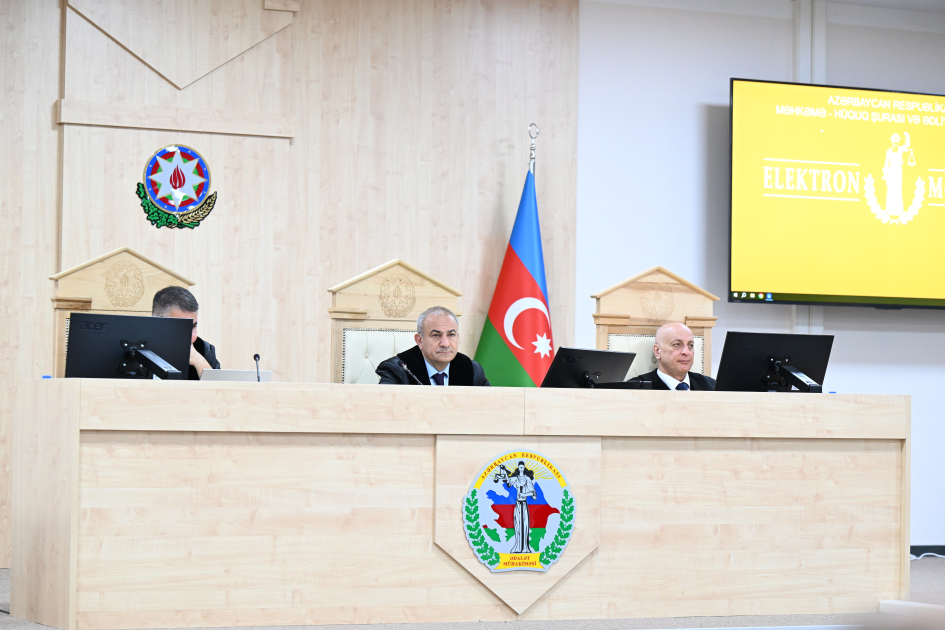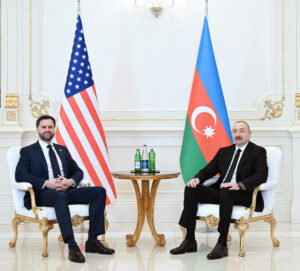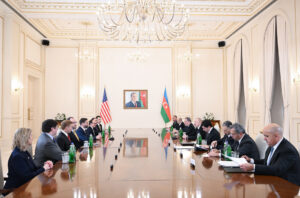Court Reveals New Evidence of Illegal Settlement in Azerbaijan’s Formerly Armenian-Occupied Territories

Baku, The Gulf Observer: The Baku Military Court resumed hearings on Friday in the high-profile criminal case against several Armenian nationals accused of war crimes, crimes against humanity, terrorism, and other serious offenses committed during Armenia’s military aggression against Azerbaijan. The proceedings are being presided over by Judge Zeynal Agayev, with Judges Jamal Ramazanov and Anar Rzayev, and reserve judge Gunel Samedova also in attendance.
The defendants — including former self-proclaimed “officials” such as Arayik Harutyunyan, Arkadi Ghukasyan, Bako Sahakyan, Davit Ishkhanyan, David Babayan, and Levon Mnatsakanyan — face charges under numerous provisions of the Azerbaijani Criminal Code, including genocide, aggressive war planning, illegal occupation, terrorism financing, and the forcible seizure and retention of power.
Each defendant has been provided legal counsel and translation services. The trial also includes participation from victims, their representatives, and state prosecutors.
During the session, Bako Sahakyan, who headed the so-called entity illegally established in Azerbaijani territories between 2007 and 2020, was further questioned by Tugay Rahimli, Assistant to the Prosecutor General for Special Assignments. Sahakyan admitted involvement with the “Hayastan” All-Armenian Fund, revealing that financial contributions from the Armenian diaspora were used to fund infrastructure and settlement projects in occupied Azerbaijani territories — including the construction of two major roads from Armenia to Khankendi.
Sahakyan also confirmed that military equipment was transported along these routes, and acknowledged that part of the fund’s resources were used to facilitate the illegal settlement of foreign nationals — primarily citizens from Syria and Lebanon — in regions such as Lachin, Kalbajar, Zangilan, and Gubadli.
Evidence presented in court, including official documents and video materials, substantiated the organized nature of these settlements. Video footage showed settlers like Tony Hajar from Beirut describing how the self-proclaimed local authorities provided housing and incentives. Elik Harutyunyan, representing the so-called local government in Shusha, was also seen explaining how these settlers were to receive property rights after 10 years of residence.
A strategic settlement plan was approved by the self-proclaimed regime in 2001, targeting the construction of 10,000 housing units and other infrastructure. Approximately $4 million was invested through entities like the “Tufenkian” Foundation for these efforts.
Sahakyan also admitted that Armenia’s migration and social ministries played a central role in managing the settlement process, which included incentives like tax breaks and financial compensations. He stated that the initiative aimed to address demographic decline after the First Karabakh War, but ultimately fell short of its population targets.
Additionally, Sahakyan confirmed deforestation activities in the occupied areas, explaining that certain trees were felled with permission from the so-called ministry and used for barrel production or exported to Armenia.
Documents submitted by Azerbaijan’s Ministry of Defense, Foreign Intelligence Service, and State Security Service supported the prosecution’s claims of illegal settlement and economic exploitation, including passport copies of foreign settlers.
The trial, involving a total of 15 Armenian-origin defendants, forms part of a broader investigation into crimes committed under the leadership and coordination of Armenian state officials and military commanders, including Robert Kocharyan, Serzh Sargsyan, and others.
Charges against the accused cover a wide array of criminal acts under Azerbaijani law, including Articles 100 (aggressive war), 103 (genocide), 105 (extermination), 214 (terrorism), 218 (criminal organization), 228 (illegal weapons possession), 277 (assassination of officials), and 278 (forcible seizure of power), among many others.
The next court hearing is scheduled for June 23.


